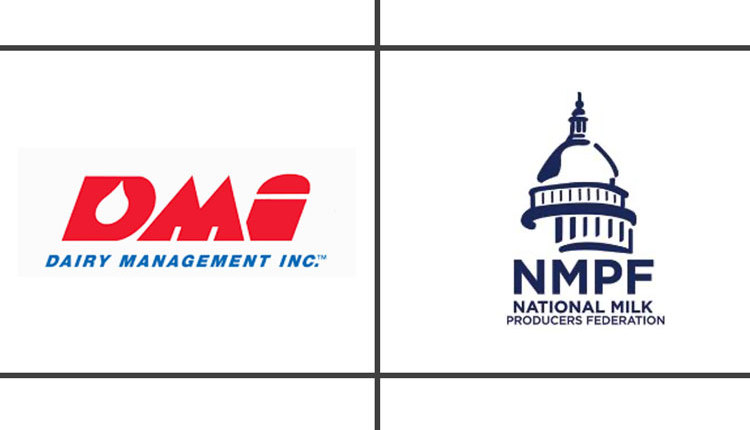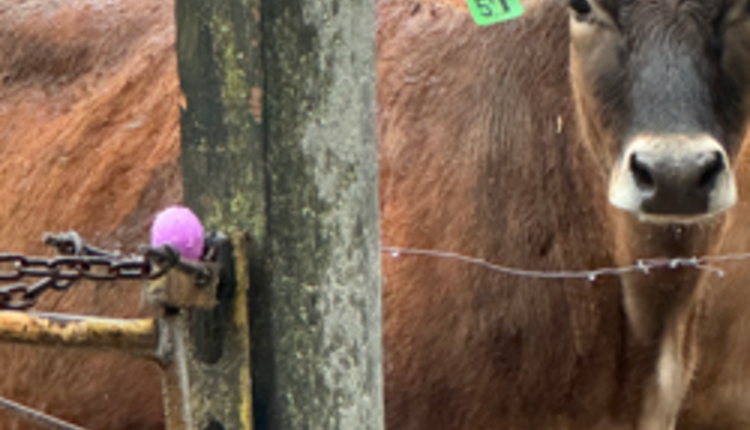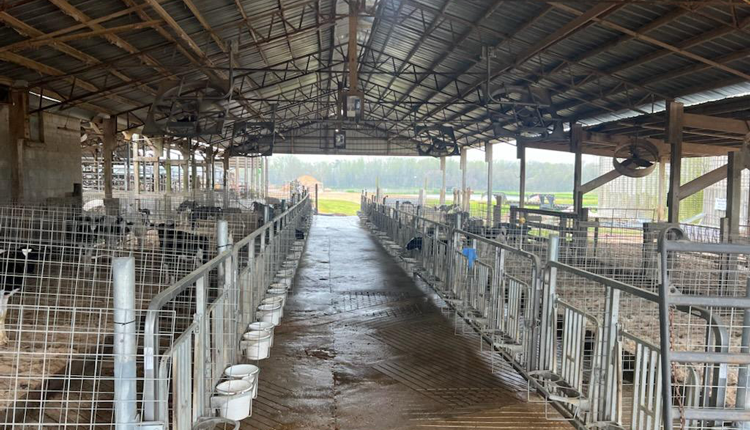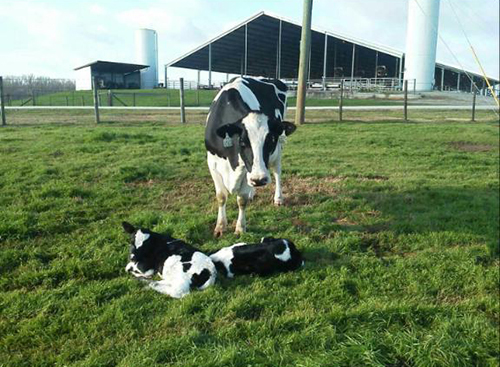
How important are the first 100 days of a dairy animal's life? It has been proven that what you do during those first three months of life will have strong effects on how that cow will produce during its future lactations. For this reason, making sure calves have exceptional care is crucial!
At Hillcrest Farms, the first 100 days include some very important stages. These stages include:
The first 12 hours of life:
- Two bottles of high-quality colostrum are fed - the earlier, the better.
- Calf Guard and Enforce 3 vaccines are administered.
- The calf is moved to a clean and comfortably bedded hutch with fresh feed and water.
- The calf is provided fresh water, calf starter, and one bottle of milk twice daily.
- Inspections are done every morning, checking the eyes, nose, ears, and manure.
- The calf is provided water, calf starter, and 1-½ bottles of milk twice daily.
- The calf is fed water and grower mix twice a day, and 1-½ bottles of milk once a day.
- The calf is weaned at Day 60.
- The calf is fed grower mix and water twice daily.
- Special attention is given to assure that calves are weaned properly.
- Calves are moved to a "superhutch." This hutch can hold up to four calves comfortably.
- Each calf is trained to use headlocks.
- Calves are moved to pasture.
We have seen at least a 15 percent increase in growth in our calves since we made a few changes like switching to Ampli-Calf starter and using superhutches. Giving calves the cleanest environment possible and providing the necessary attention is crucial to producing a healthy, well-grown dairy cow that can produce high quantities of high-quality milk!
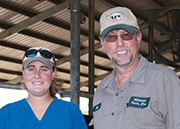 Mark and Caitlin Rodgers are dairy farmers in Dearing, Georgia. Their "Daddy and Daughter Dairy Together" column will appear every other Thursday on HD Notebook. The Rodgers have a 400-cow dairy that averages 32,000 pounds of milk. Follow their family farm on Facebook at Hillcrest Farms Inc.
Mark and Caitlin Rodgers are dairy farmers in Dearing, Georgia. Their "Daddy and Daughter Dairy Together" column will appear every other Thursday on HD Notebook. The Rodgers have a 400-cow dairy that averages 32,000 pounds of milk. Follow their family farm on Facebook at Hillcrest Farms Inc.



